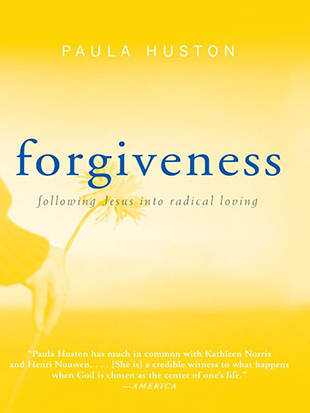"Even though these words of Jesus are likely familiar, we are still startled and amazed when people take them seriously. The person who lives out these words often becomes a saint. Francis of Assisi famously kissed a leper; Mother Teresa pulled the homeless and starving out of the gutters of Calcutta so that they could die with dignity; Sister Helen Prejean ministers to brutal murderers. We can't fathom such selflessness; we assume special gifts must be involved because normal people are incapable of such acts.
"Yet Jesus calmly states that all of us, no matter how imperfect, are meant to live this way. We are to love one another as Jesus loves us. We cannot live only for ourselves and still call ourselves Christian. The radical individualism of the twenty-first century makes it especially difficult for us to grasp, much less begin to live by, this outrageous concept.
"Christ's injunction to forgive only begins to make sense when we read it in this context. If we have not yet gotten the point, if we don't yet understand what a truly radical form of love we have been called to, then we will never get past our sense of self-righteous affront at the all-too- obvious sins of everyone around us. We will be tempted to take up the cause for social justice, write scathing diatribes, even donate money, all the while doggedly avoiding the face of Christ next door.
"Forgiveness as Jesus teaches it in the Gospels is the natural extension of his wider teaching on love. The Amish, who seemed sincerely puzzled at the astonishment of the media over their ability to forgive, tried to explain that forgiveness is simply a manifestation (sometimes, as in this particular case, a dramatic one) of a life lived according to Christ's double commandment of love: 'You shall love the Lord your God with all your heart, with all your soul, with all your mind, and with all your strength . . . (and) you shall love your neighbor as yourself' (Mk. 12:30-31). The fact that the Amish could forgive when they were so grievously injured does not imply that forgiving is any easier for them than it is for us — only that they are fully convinced that Jesus' teachings on forgiveness lie at the heart of what it means to be a Christian.
"None of this, when I first began to figure it out, was welcome news. The double commandment of love and Christ's injunction to forgive clearly had major implications for the way I lived my life, and I didn't yet feel ready to accept and act on them. But no matter how I scanned the Gospels for a loophole, or even one good reason to stall a little longer, I kept coming up empty-handed."
